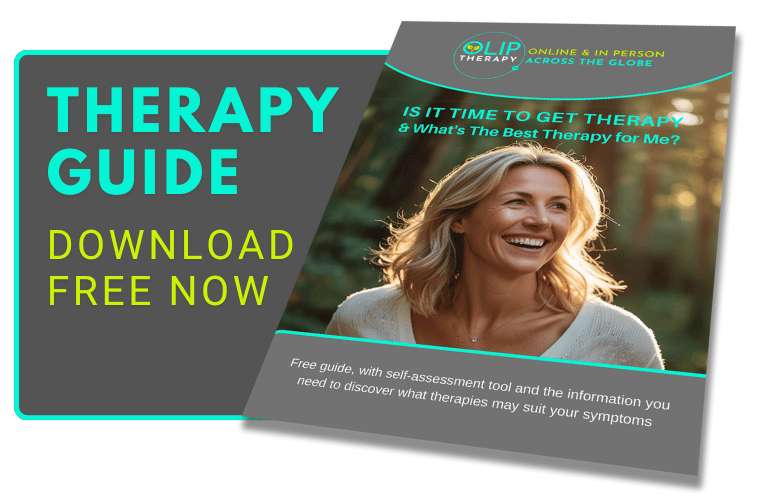
Help with Feelings of Guilt and Shame using Hypnotherapy, Counselling & CBT Online and In-Person
Help to overcome the negative effects of guilt and shame with hypnotherapy & counselling
Is guilt ever a good thing?
Guilt is a universally unpleasant emotion that we’ve all experienced at some point. It can feel relentless, gnawing at us and prompting us to scrutinise our actions or thoughts with a highly critical lens. Guilt often leaves us feeling like we’ve done something wrong and this feeling can linger, making it difficult to shake. We begin learning this emotion early in life, as it plays a vital role in shaping our sense of responsibility, helping us to learn from our mistakes and grow as individuals.
One of the reasons guilt is such a powerful emotion is because it is deeply personal. While emotions like love or anger are directed towards others, guilt is an internal experience - something we feel alone, often with a sense of regret or self-reproach.
Proportionate Guilt
Proportionate guilt, however, can be a healthy emotion. This is the type of guilt that arises when we have genuinely done something out of alignment with our personal ethics or moral standards. It helps us reflect on our actions, take responsibility and make amends for any wrongdoing.
For example, if you had an argument with someone and, in the heat of the moment, said things you didn’t mean, you might feel guilty afterwards. In this case, guilt serves a constructive purpose by signalling that you’ve crossed a line and should take steps to repair the situation - such as offering an apology for your hurtful words.
How can CBT help feelings of shame and guilt?
Cognitive Behavioural Therapy (CBT) helps with feelings of guilt by addressing the thought patterns and behaviours that contribute to it. Guilt often stems from irrational or exaggerated beliefs about personal responsibility or the consequences of one's actions. CBT encourages individuals to identify and challenge these unhelpful thoughts, replacing them with more balanced and realistic perspectives.
Through techniques like cognitive restructuring, clients learn to reframe their negative self-judgements, recognising when guilt is disproportionate or misplaced. CBT also focuses on developing healthier coping strategies, helping individuals respond constructively to guilt-inducing situations rather than dwelling on self-blame.
Behavioural techniques are used to break the cycle of avoidance or rumination that can amplify guilt. For example, engaging in positive actions like making amends or practising self-forgiveness helps reduce guilt over time. By targeting both thoughts and behaviours, CBT enables us to foster a more compassionate and balanced approach to dealing with guilt.
How can Hypnosis & Hypnotherapy help with feelings of guilt and shame?
Hypnotherapy can help with feelings of guilt by accessing the subconscious mind, where our deeply ingrained beliefs and emotional responses reside. In a relaxed, focused state, individuals can explore the root causes of their guilt, whether they were formed from past experiences or perhaps distorted self-perceptions. Hypnotherapy can help reframe negative thought patterns and foster self-compassion, replacing self-criticism with healthier, more constructive beliefs.
It also reduces the emotional intensity of guilt by allowing people to revisit guilt-inducing situations from a calm, detached perspective. This can lead to the release of unnecessary or misplaced guilt. Hypnotherapy encourages self-forgiveness and emotional healing, helping individuals move past feelings of regret and shame.
Through positive suggestion techniques, clients can learn to build healthier coping mechanisms, ensuring they handle future mistakes with more balance and understanding, rather than overwhelming guilt. Overall, it promotes emotional resilience and self-acceptance.
How can Counselling assist with feelings of guilt and shame?
Counselling can help with feelings of guilt by providing a safe, non-judgemental space where individuals can explore the reasons behind their guilt. A counsellor helps clients unpack the emotions and thoughts associated with guilt, allowing them to gain insight into whether their guilt is proportionate or misplaced. Through open discussion, clients can identify unrealistic expectations or excessive self-blame, which often underpins feelings of guilt.
Counselling encourages self-compassion and helps individuals develop a more balanced view of their actions, recognising that mistakes are a natural part of being human. It also provides strategies for making amends or addressing any wrongdoings, which can alleviate guilt in a constructive way.
Additionally, a counsellor can guide clients through the process of forgiving themselves and releasing past regrets. By helping clients process their emotions and build healthier thought patterns, counselling promotes emotional healing and helps to reduce the burden of guilt over time.
When Guilt Gets Too Much:
Retaining and internalising guilt can cause problems as this can have the following effects:
Low self-esteem
Feeling stuck in a certain situation
Being self-critical
Negative thoughts about yourself
It is easy to see how this emotion can at times be consuming and it is important to deal with this emotion appropriately and then let it go.
At OLIP Therapy, (formerly the Hampshire Hypnotherapy & Counselling Centre), we really do understand and we’re here to help you. The first step is to admit that your guilt is causing you problems in your life and then just pick up the phone and call us on 0800 970 4776 and have a quick chat with one of our friendly team of professional hypnotherapists & counsellors. You can then book an appointment to pop in for a free initial consultation and we can explain the therapy to you and you can ask any questions you may have.









